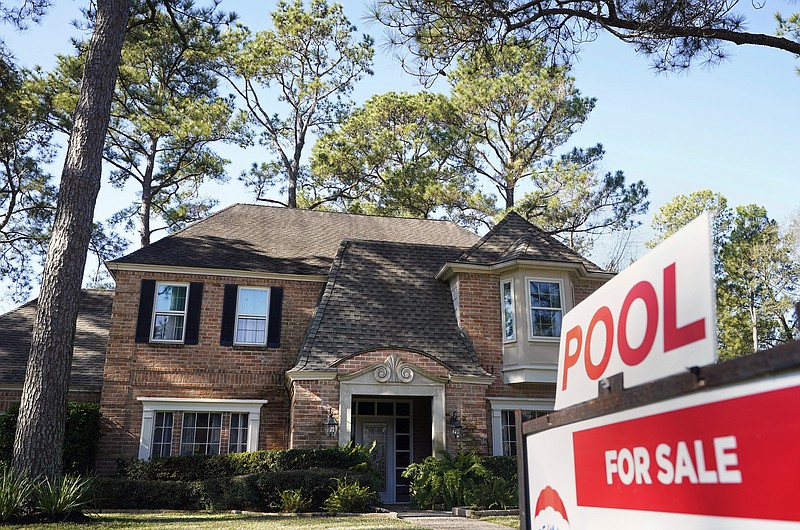TEXARKANA -- Rapidly increasing mortgage interest rates are making it difficult for first-time home buyers to find good deals and for homeowners to upsize in the current market, a local expert says.
At the start of 2022, the 30-year fixed-rate mortgage average in the U.S. hovered around 3 percent, according to Freddie Mac. By May 19, the average rate had jumped more than 2 percentage points to 5.25 percent.
Jared Horton, owner/broker at Century 21 in Texarkana, Texas, said mortgage interest rates have shot up over a percent since April 2022 to about 5.5%. He expects it to be a little over 6% by the end of the year.
"I feel like the rates have gone up so fast that it's caught everybody by surprise," Horton said. "Everything is changing so fast, I can barely keep up with it."
The Texas A&M Real Estate Research Center reported last month that in the first quarter of 2022, the required income to qualify for a mortgage loan at a rate of 3 percent amounted to $59,665 for the first-quartile Texas sales price of $229,000. The first-quartile sales price generally reflects the home price affordable to first-time buyers.
The required qualifying income increased more than $10,000 to $70,891 at a rate of 5.5 percent. TRERC estimates only 30 percent of Texas renters -- potential first-time buyers -- could afford the state's first-quartile sales price.
This is a decline of nearly 10 percentage points from the estimated 38.9 percent of Texas renters who could afford the state's first-quartile sales price at a rate of 3 percent.
"I mean that's a whole different house all of a sudden, when you're talking about knocking 10% or better out of what you can afford," Horton said.
Following an unprecedented year of land sales in 2021 commonly referred to as the "Texas Land Rush," the Federal Reserve announced in February that it was raising the federal funds rate, which previously hovered near 0 percent, by a quarter point.
Local real estate agent Tracy Spradlin, with Impact Realty Group, LLC, told the Gazette in a past interview that she expected those rates to continue to increase. The Feds recently raised it to a range of 0.75% to 1%, the highest point since the pandemic struck two years ago.
Horton said the increase has caused banks to increase their mortgage interest rates, resulting in the spike.
"When this all started happening, people could sell and buy up," he said. "The problem right now is if you sell and you have that equity, if you can find something else, you're just making a lateral move.
"To buy my same house now, it'd be 100% more than what I paid for 13 years ago."
Horton said he thinks the ultimate result of increasing rates will be a flat market for a few years.
"If you buy a house today for $200,000, I think that in three years, it's still going to be worth $200,000 because that house was $130,000 two years ago," he said. "That's just my guess."
He said in the near future, he anticipates a lower number of people moving solely for better deals or to move into different neighborhoods.
"People aren't going to move just because they want to move or because they'd like to be in a different neighborhood, Horton said. "I think they're going to move because they are moving out of or into town. I don't think there's going to be a lot of move-up or move-down buying."

